Trump threatens widening trade war as first tariffs loom Saturday
On eve of expected Mexico-Canada-China duties, the US president says he will impose sector-based levies on chips, pharmaceuticals and more.
The US will impose tariffs on computer chips, pharmaceuticals, steel, aluminium, copper, oil and gas imports as soon as mid-February, President Trump said, opening a new front in his looming second-term trade wars.
“That’ll happen fairly soon,” Trump told reporters in the Oval Office on Friday (Saturday AEDT), adding that he also wants to hike tariffs on the European Union, which has “treated us so horribly,” though he did not specify when or how high the duties would be.
A representative for the European Union didn’t immediately respond to a request for comment.
The announcement for those sector-based and EU tariffs appeared separate from the 25 per cent tariffs on Canada and Mexico, and 10 per cent tariffs on China, which he had said would be implemented Saturday.
The duties previewed by Trump would come on top of existing tariffs on those products, he said, waving away any concern about the levies increasing inflation or snarling global supply chains.
“I think there could be some temporary, short-term disruption and people will understand that,” Trump said. “The tariffs are going to make us very rich and very strong.”
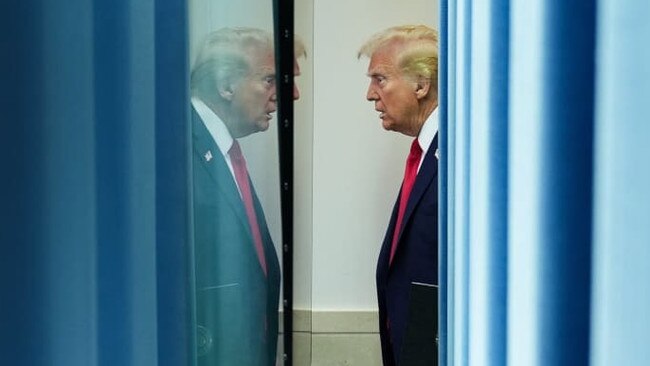
In the short-term, leaders in Mexico, Canada and China – and CEOs of American companies – were hyperfocused on whether the president will include carve-outs for major industries that have lobbied him hard in recent days. His team has been in negotiations over how to potentially dial back tariffs on those countries from the across-the-board version the president has pledged, but officials have warned that Trump may still decide to go through with a full-throated approach.
White House press secretary Karoline Leavitt on Friday said the Mexico, Canada and China tariffs were coming but declined to speak on exemptions for certain products or what, if anything, the trading partners could do to avoid the duties.
Trump’s team has also been considering a grace period between the announcement of the tariffs on Saturday and when they would actually be imposed. Leavitt seemed to play down that possibility on Friday, telling reporters Trump “will implement his tariffs tomorrow”.
Stocks pared morning gains and turned negative after her remarks.
Trump told reporters in the Oval Office that there was nothing Canada, Mexico and China could do to avoid the tariffs before Saturday. But he did say he was considering a lower tariff on Canadian crude oil – 10 per cent instead of 25 per cent.
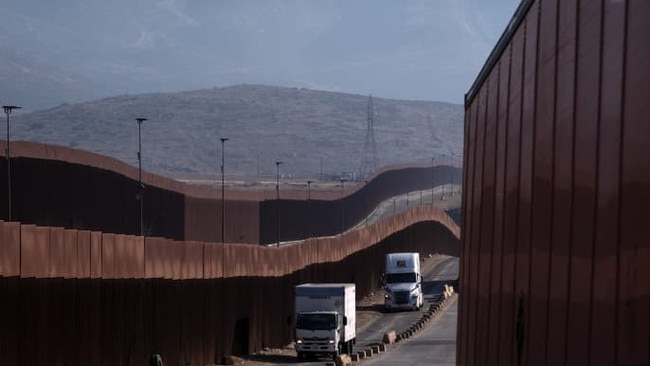
The decision on carve-outs for the first round of duties expected Saturday will provide an early indicator on the level of economic risk the president is willing to take in sparking new trade wars and pushing other nations to adhere to his policy demands.
For weeks, large US industries like the oil and automotive sectors have lobbied him for exemptions from the tariffs, warning of higher prices and continental-wide supply chain issues, while Canada and Mexico have prepared a list of retaliatory measures to hit US products with tariffs in kind.
Trump advisers have considered exemptions for oil imports and automobiles that comply with the US-Mexico-Canada Agreement, the updated NAFTA deal that Trump negotiated and signed in his first term.
Trump on Thursday gave some indication that exemptions could be coming, saying that he would consider a carve-out for oil, but reiterating that the tariffs would be imposed on Saturday, despite extensive talks with Canada and Mexico this week. His administration has insisted that none of the duties would add to inflation, arguing that lower inflation during his first term means that new tariffs won’t meaningfully move the price level.
The China tariff threat, meanwhile, has flown under the radar compared with the North American tariff pledges. While Trump said earlier this week that he was still considering duties on the world’s second-largest economy, he has rhetorically targeted Canada and Mexico much more often, and his team had appeared to have less contact with Chinese diplomats than officials from the US’s continental neighbours.
Depending on carve-outs, this round of Trump tariffs could cover more trade in dollar value than any of his first-term duties. Trump’s four tranches of tariffs on Chinese goods in 2018-19 covered imports valued at roughly $US360 billion at the time. New tariffs on Canada and Mexico plus additional tariffs on China would – if all items are subject to the action – cover imports valued at more than $US1.3 trillion in 2023.

Canada and Mexico combined supplied about 28 per cent of US imports in the first 11 months of 2024, according to Census Bureau data. China accounted for an additional 13.5 per cent.
US Customs and Border Protection reported that last fiscal year 21,148 pounds (9592kg) of fentanyl was seized at the southwest border, the most from US citizens coming through legal ports of entry. On the northern border, CBP reported seizing 43 pounds of the drug.
Officials from both US neighbours mounted a concerted campaign this week to avoid the tariffs, opening new migration and drug working groups with the administration while also preparing a list of retaliatory measures to hit US products with tariffs in kind.
Throughout the process, Mexican and Canadian officials have expressed frustration that they don’t know what actions would satisfy Trump’s demands, despite weeks of meetings between senior officials. Indeed, the looming tariff announcement Saturday would follow the White House saying publicly this week that negotiations were progressing well with both nations.
On Friday morning, Canadian Prime Minister Justin Trudeau reiterated that Canada would have a “forceful but reasonable” response to US tariffs. He warned that the Canadian economy could suffer. “I won’t sugarcoat it,” he said.
Canada’s central bank warned this week that trade conflict with the US would throw the Canadian economy into turmoil. On Friday, Canada’s public safety minister, who is in charge of the border, as well as its immigration and foreign ministers were all in Washington for last-minute meetings with Tom Homan, Trump’s border tsar.
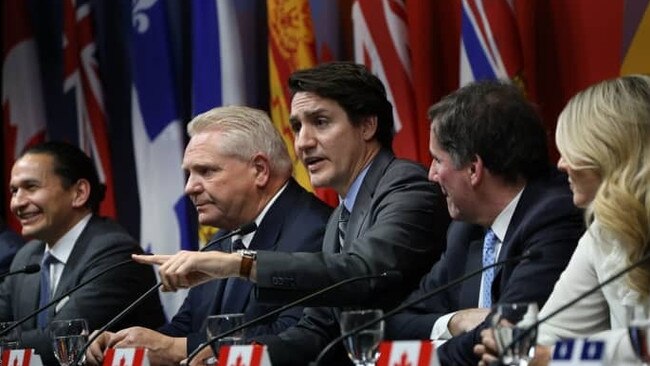
Mexican President Claudia Sheinbaum, meanwhile, said her government is ready for Trump’s tariffs and would respond in kind.
“We have Plan A, Plan B, Plan C for whatever the US government decides,” Sheinbaum said. “It’s important to remember the implications that imposing tariffs could have for the US economy.”
Mexican Economy Minister Marcelo Ebrard said a 25% duty on Mexican goods would have a multibillion-dollar impact on US consumers, affecting millions of households.
“Mexico is the main exporter of finished products like automobiles, computers, TV screens and refrigerators,” he said, adding that tariffs would also raise prices of fresh fruit and vegetables, meat and beer.
“This impact will be greater in border states and cities that are big consumers of Mexican goods, like California, Texas, Florida and Arizona,” Ebrard said.
If Trump does exempt certain industries from the tariffs, it would come after weeks of concerted lobbying by business and labour groups alike.
This week, the United Steelworkers, a powerful union with many members who voted for Trump across the industrial Midwest, called on Trump to back away from across-the-board tariffs. Behind closed doors, the steelworkers union has stressed the importance of Canadian oil to many of its members, pointing out that about 30,000 steelworkers are employed by oil refineries that use Canadian crude – oil that could be replaced by imports from other countries, including Venezuela, if Canadian oil becomes too expensive.
The president hasn’t said which legal authorities would be used to impose the tariffs. Trump advisers had considered using emergency economic authority to impose the sanctions, but The Wall Street Journal earlier reported that aides have second-guessed that strategy after a federal judge temporarily blocked a Trump administration memo seeking to freeze federal assistance grants and loans.
While the US, Canada and Mexico have a standing free-trade agreement, it is not clear that the expected tariff action would immediately violate that pact. The US-Mexico-Canada Agreement, like most trade pacts, includes a provision that allows for the imposition of tariffs on national-security grounds.
But some veterans of the USMCA talks say Trump’s tariff move strikes them as an abuse of that loophole. The national security emergency exception was meant for “break glass” scenarios, one person involved in the negotiations said, and if it is invoked at “the drop of a hat,” the overall pact is undermined.
– Anthony DeBarros in Washington contributed to this article.
Dow Jones Newswires


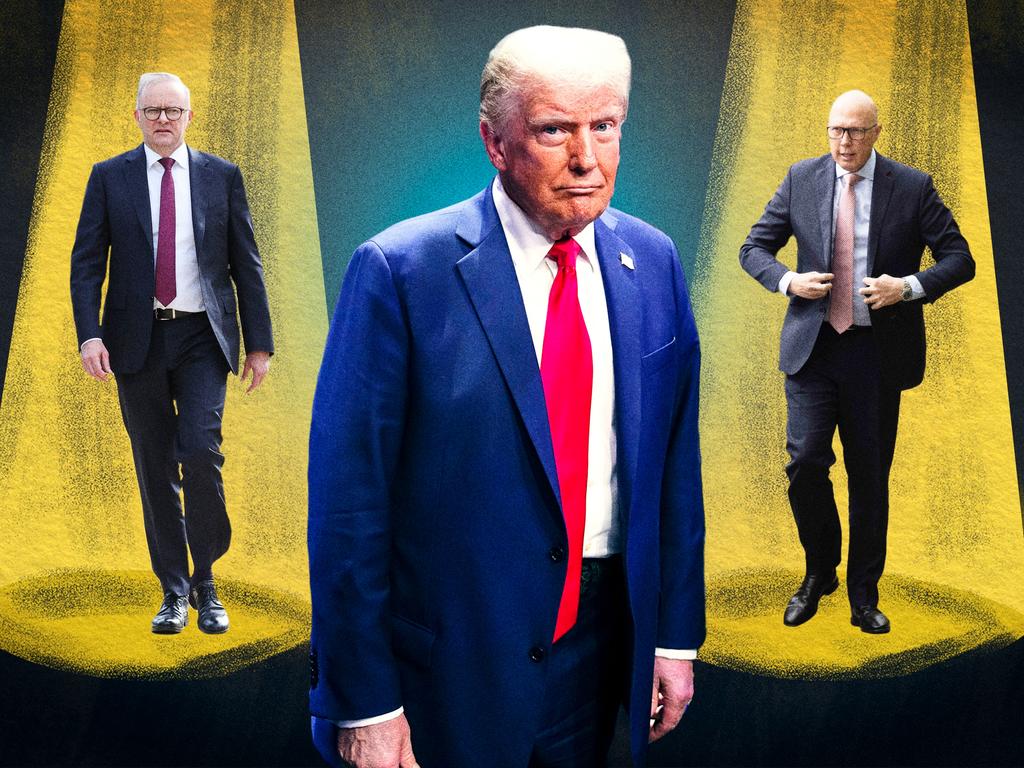
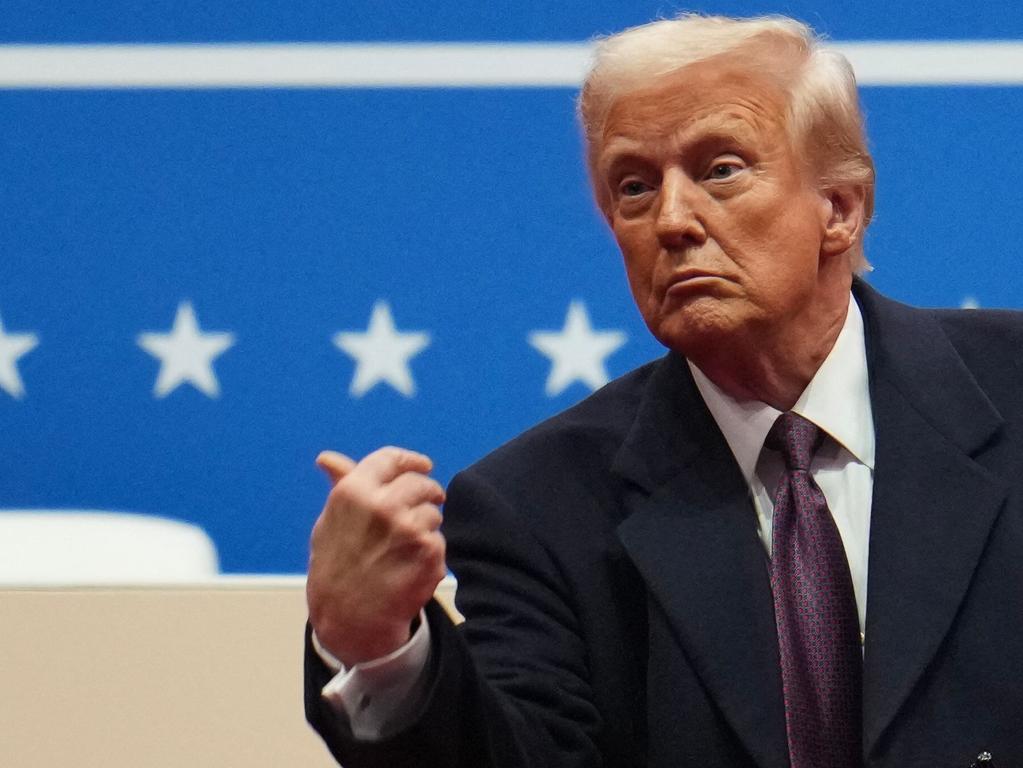



To join the conversation, please log in. Don't have an account? Register
Join the conversation, you are commenting as Logout